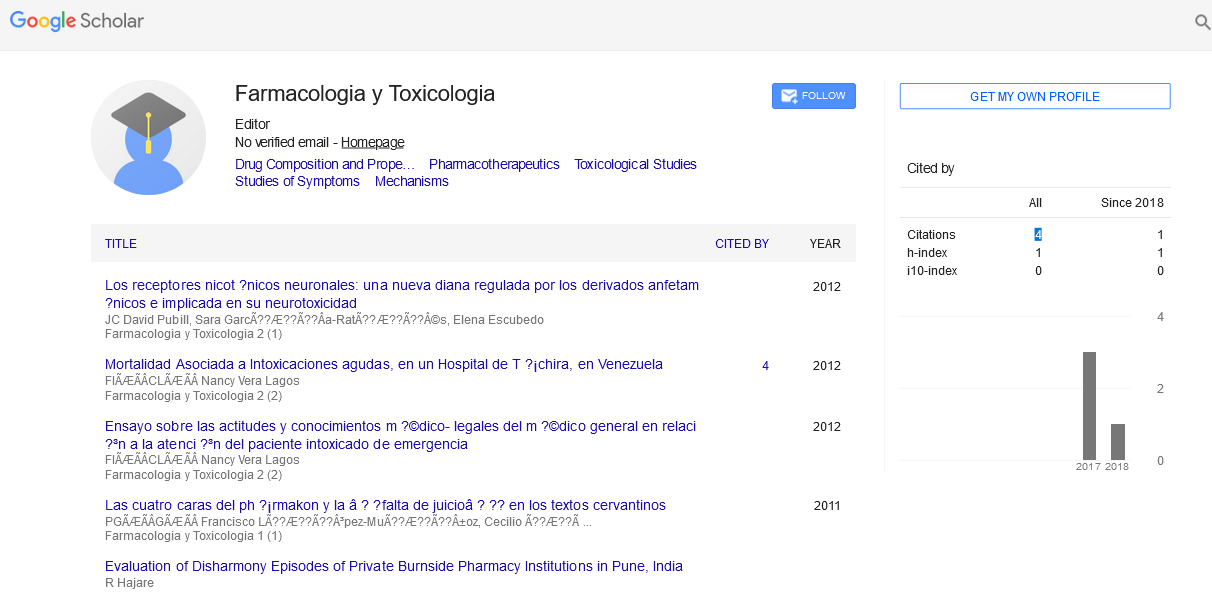Expert Review - (2023) Volume 13, Issue 3
The Importance of Clinical Trials in Advancing Medical Science
Vulli Krishanakanth*
Department of Pharmacy, Banasthali Vidyapith, Banasthali, Rajasthan-304022, India
*Correspondence:
Vulli Krishanakanth, Department of Pharmacy, Banasthali Vidyapith, Banasthali, Rajasthan-304022,
India,
Email:
Received: 01-Jun-2023, Manuscript No. ipft-23-13857;
Editor assigned: 05-Jun-2023, Pre QC No. P-23-13857;
Reviewed: 20-Jun-2023, QC No. Q-23-13857;
Revised: 23-Jun-2023, Manuscript No. R-23-13857;
Published:
30-Jun-2023
Abstract
Clinical trials play a crucial role in advancing medical knowledge and improving patient care by evaluating the safety, efficacy, and effectiveness of medical interventions. These meticulously designed studies provide a systematic framework for testing new treatments, diagnostics, and preventive measures, ensuring evidence-based decision-making in healthcare. This abstract explores the significance of clinical trials in the medical field and highlights their fundamental components. It begins by outlining the primary objectives of clinical trials, including assessing the safety and effectiveness of interventions, identifying adverse effects, and comparing different treatment options. Clinical trials also contribute to the development of guidelines and standards for medical practice, helping healthcare professionals make informed decisions for their patients. The abstract then emphasizes the importance of ethical considerations and regulatory frameworks in conducting clinical trials. Ethical principles, such as informed consent, confidentiality, and patient rights, are critical in safeguarding the well-being and autonomy of study participants. Regulatory bodies and institutional review boards play a pivotal role in overseeing trial protocols, ensuring patient safety, and maintaining research integrity. The abstract also underscores the collaborative nature of clinical trials, involving multidisciplinary teams comprising researchers, physicians, statisticians, and patients. It emphasizes the need for robust data collection and analysis methodologies to ensure accurate interpretation of trial outcomes. Clinical trials are indispensable tools for advancing medical knowledge and improving patient care. Through rigorous study designs, ethical considerations, and collaborative efforts, clinical trials provide evidence that guides healthcare practice, informs treatment decisions, and enhances the well-being of patients worldwide. Continued support and participation in clinical trials are crucial for the development of innovative and effective interventions that can transform the landscape of modern medicine [1, 2].
Keywords
Clinical trials; Medical interventions; Pharmaceuticals;
Healthcare
INTRODUCTION
Clinical trials play a pivotal role in the advancement of
medical science by testing new treatments, therapies,
and interventions before they are made available to the
general population. These trials are carefully designed
and conducted to gather valuable data on the safety and
efficacy of new drugs, medical devices, and procedures.
The information gathered from clinical trials helps medical
professionals make informed decisions about patient care,
shapes healthcare policies, and contributes to the overall
progress of medicine. In this article, we will explore the
significance of clinical trials, their various phases, ethical
considerations, and their impact on the future of healthcare
[3].
DISCUSSION
Clinical trials play a pivotal role in advancing medical
knowledge and improving patient care. These carefully
designed research studies evaluate the safety and efficacy
of new medical interventions, such as treatments, drugs,
or devices, before they are approved for widespread use.
By enrolling participants and following rigorous protocols,
clinical trials generate valuable evidence that guides
healthcare decisions and contributes to the development
of evidence-based medicine. Through the systematic
evaluation of different interventions, clinical trials aim
to uncover new treatment options, improve existing
therapies, and ultimately enhance patient outcomes.
These trials are essential for ensuring the safety and
effectiveness of medical interventions and are conducted in
various settings, including hospitals, research centers, and
academic institutions. This article explores the significance
of clinical trials in advancing healthcare and highlights
their critical role in providing patients with access to
innovative and potentially life-saving treatments. Clinical
trials are essential components of medical research and
play a crucial role in advancing healthcare and improving
patient outcomes. They are structured studies designed to
evaluate the safety, efficacy, and effectiveness of new drugs,
treatments, medical devices, or interventions in human
subjects. Clinical trials provide valuable evidence-based
information that helps guide medical decision-making and
shape the development of innovative therapies. The primary
objective of a clinical trial is to gather scientific data to
determine whether a new intervention is safe and effective
in treating a specific medical condition or improving
patient outcomes. These trials follow rigorous protocols
and are conducted in a controlled setting, often involving
a diverse group of participants, including patients, healthy
volunteers, or both. By systematically collecting data on the intervention's effects and monitoring participants'
responses, researchers can assess its potential benefits, side
effects, and overall impact on health [4, 5].
Clinical trials are integral to the process of discovering and
evaluating new interventions in healthcare. They provide
critical evidence regarding safety, efficacy, and effectiveness,
ultimately leading to improved treatments and better
patient outcomes. By participating in clinical trials,
individuals contribute to advancing medical knowledge,
shaping future therapies, and potentially benefiting their
own health and the health of others.
The Purpose of clinical trials
Clinical trials are research studies that involve human
participants to assess the safety, effectiveness, and potential
side effects of a new intervention. They serve multiple
purposes:
1.1 Evaluating new treatments: Clinical trials are
conducted to assess the efficacy and safety of new
drugs, therapies, or medical devices. They provide
an opportunity to determine whether a proposed
treatment is more effective than existing options,
leading to improved patient outcomes.
1.2 Expanding medical knowledge: By participating in
clinical trials, researchers gain insights into various
diseases, their underlying mechanisms, and the
human body's response to different treatments. These
studies contribute to expanding medical knowledge
and understanding [6].
1.3 Developing guidelines and policies: The data
generated from clinical trials inform the development
of treatment guidelines and healthcare policies.
These guidelines help healthcare professionals make
evidence-based decisions about patient care.
Phases of clinical trials
2.1 Clinical trials are typically divided into four phases:
Phase 1: In this initial phase, a small group of healthy
volunteers receives the experimental treatment. The focus is
primarily on assessing its safety, dosage range, and potential
side effects.
Phase 2: The experimental treatment is administered to a
larger group of participants, often including patients with
the target condition. This phase evaluates the treatment's
effectiveness and further examines its safety profile.
Phase 3: The treatment is given to an even larger group of
participants, usually in different locations, to gather more
comprehensive data on its safety, efficacy, and side effects.
This phase compares the new treatment with existing
standard treatments or placebos.
Phase 4: After the treatment is approved for general use,
Phase 4 trials monitor its long-term safety and effectiveness
in a larger population. These post-marketing studies
provide ongoing surveillance of the treatment's benefits
and potential risks.
Ethical considerations in clinical trials
The ethical conduct of clinical trials is of paramount
importance to protect the rights and well-being of participants. Key considerations include:
3.1 Informed consent
Participants must be fully informed about the nature
of the trial, its potential risks and benefits, and their
rights as participants. Informed consent ensures that
participants voluntarily agree to participate after
understanding the study's purpose and potential
implications [7].
3.2 Participant safety
Clinical trials have rigorous safety measures in place
to minimize any potential risks to participants.
Independent ethics committees and institutional
review boards carefully review trial protocols to ensure
participant safety [8].
3.3 Data integrity and privacy
The confidentiality of participants' personal and
medical information is strictly protected. Researchers
follow ethical guidelines to ensure data integrity,
privacy, and proper handling of sensitive information.
The Impact of clinical trials
Clinical trials have had a profound impact on the field of
medicine
4.1 Improving patient care
Clinical trials provide access to potentially lifesaving
treatments, allowing patients to benefit from
innovative therapies before they are widely available.
They help improve standards of care and provide hope
for patients with limited treatment options [9].
4.2 Disease prevention and early detection
Clinical trials also focus on preventive measures,
such as vaccines and screening methods. Through
these trials, scientists identify effective strategies to
detect diseases at an early stage or prevent their onset
altogether [10].
CONCLUSION
Clinical trials play a crucial role in advancing medical
research, improving patient care, and ultimately shaping the
future of healthcare. These trials are essential for evaluating
the safety and efficacy of new treatments, medications,
and medical interventions. Through rigorous testing and
analysis, they provide valuable insights into the benefits,
risks, and optimal usage of medical interventions.
Clinical trials involve a collaborative effort between
researchers, healthcare professionals, regulatory bodies, and
most importantly, the brave individuals who participate
as volunteers. Their participation allows researchers to
collect vital data, enabling evidence-based decisionmaking
and the development of innovative therapies.
Their contributions are invaluable in expanding our
understanding of diseases and finding potential cures. The
outcomes of clinical trials have the potential to transform
healthcare by introducing novel treatments, improving
existing therapies, and enhancing patient outcomes. They
provide the foundation for evidence-based medicine,
helping healthcare professionals make informed decisions
about the most appropriate and effective treatments for
their patients. Moreover, clinical trials foster a culture of innovation and scientific discovery. They encourage
collaboration among researchers, healthcare institutions,
and pharmaceutical companies, leading to the development
of breakthrough therapies and medical technologies. While
clinical trials are essential, it is crucial to ensure the ethical
conduct of these trials and the protection of participant
rights. Stringent regulations and guidelines are in place to
safeguard the well-being and safety of trial participants.
Ethical considerations such as informed consent, privacy,
and transparent reporting of results are paramount in
maintaining the integrity of clinical research. By pushing
the boundaries of medical knowledge, clinical trials pave
the way for advancements that can revolutionize patient
care and extend lives. Clinical trials are the cornerstone of
medical progress.
They are instrumental in advancing healthcare by generating
high-quality evidence, driving innovation, and improving
patient outcomes. The collective efforts of researchers,
participants, and healthcare professionals involved in
clinical trials continue to shape the landscape of modern
medicine, bringing hope and potential new treatments to
patients worldwide.
ACKNOWLEDGMENT
None
CONFLICT OF INTEREST
No conflict of interest to declare about this work.
REFERENCES
- Zadik Yehuda, Aktaş Alper, Drucker Scott. Aneurysmal bone cyst of mandibular condyle: A case report and review of the literature. J Craniomaxillofac Surg.2012; 40(6): 243-248.
Indexed at, Google Scholar, Crossref
- Ye Y, Pringle LM, Lau AW. TRE17/USP6 oncogene translocated in aneurysmal bone cyst induces matrix metalloproteinase production via activation of NF-kappaB.Oncogene.2010; 29(2): 3619-3629.
Indexed at, Google Scholar, Crossref
- Mankin HJ, Hornicek FJ, Ortiz-Cruz E, et al. Aneurysmal bone cyst: a review of 150 patients. J Clin Oncol.2005; 23(1): 6756-6762.
Indexed at, Google Scholar, Crossref
- Amanatullah DF, Clark TR, Lopez MJ, et al. Giant Cell Tumor of Bone. Orthopedics.2014; 37(5): 112-120.
Indexed at, Google Scholar, Crossref
- Baig R, Eady J. Unicameral (simple) bone cysts. Southern Medical Journal .2005; 99(4): 966-976.
Google Scholar, Crossref
- Milbrandt, Todd; Hopkins, Jeffrey. Unicameral bone cysts: etiology and treatment. Curr Opin Orthop. 2007; 18(6): 555-560.
Indexed at, Google Scholar, Crossref
- Rapp Timothy B, Ward James P, Alaia Michael J. Aneurysmal Bone Cyst. J Am Acad Orthop Surg.2012; 20 (5): 233-241.
Google Scholar, Crossref
- Ozyurek Selahattin, Rodop Osman, Kose Ozkan, et al. (2009) Aneurysmal Bone Cyst of the Fifth Metacarpal. Orthopedics. 2009; 32(5): 606-609.
Indexed at, Google Scholar, Crossref
- Rodrigues CD, Estrela Carlos (2008) Traumatic Bone Cyst Suggestive of Large Apical Periodontitis. Journal of Endodontics.2008; 34(6): 484-489.
Indexed at, Google Scholar, Crossref
- Bloodgood, Joseph C. Benign Bone Cysts, Ostitis Fibrosa, Giant-Cell Sarcoma and Bone Aneurism of the Long Pipe Bones. Annals of Surgery.2011; 52(2): 145-185.
Indexed at, Google Scholar, Crossref





